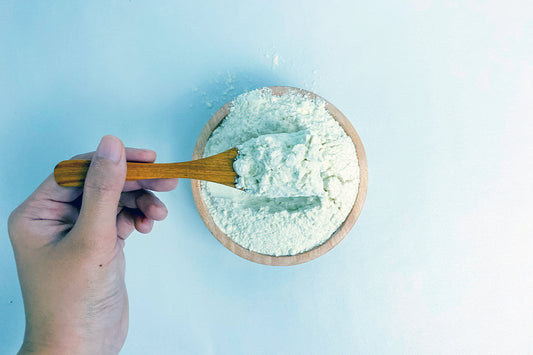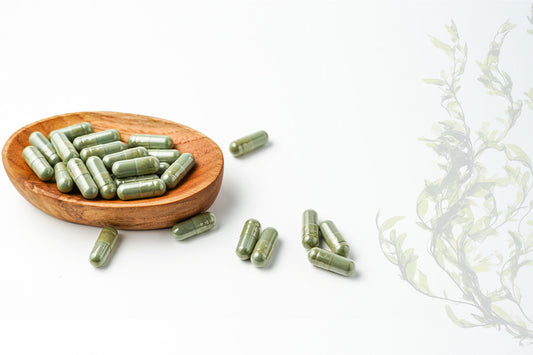Maintaining a healthy respiratory system is essential for overall wellness. Breathing efficiently supports lung functions, ensuring the body gets the oxygen it needs. For those who want to help maintain their respiratory health, there’s good news — certain spices have been shown to benefit lung health. These herbal spices, rich in antioxidant and anti-inflammatory properties, are not only great for adding flavor to your meals but also for supporting your respiratory functions. Let’s explore 5 spices to help improve respiratory health.
- Turmeric: The Golden Spice
Turmeric is a vibrant yellow spice widely known for its powerful antioxidant and anti-inflammatory benefits. It contains curcumin, a compound that helps ease inflammation throughout the body, including the lungs. By helping to ease respiratory discomforts, turmeric may aid lung function and restore overall respiratory health. Adding turmeric to your daily diet, whether through teas, smoothies, or savory dishes, could help support your lungs and ease the irritation often associated with respiratory conditions.
Additionally, turmeric has been shown to benefit those who experience frequent sore throats, a common symptom of respiratory issues. Incorporating this golden spice regularly can be a simple way to help maintain healthy respiratory functions.
- Ginger: A Warming Root for Lung Health
Ginger, another powerhouse of anti-inflammatory properties, is widely used in traditional remedies to support respiratory health. Its warming effect helps soothe respiratory discomforts, while its anti-inflammatory benefits may help maintain lung functions.
Ginger’s ability to support respiratory health is particularly useful during seasonal changes when respiratory infections tend to rise. Adding fresh ginger to teas or meals may help enhance the function of your lungs by easing inflammation, potentially offering support to the respiratory system.
- Cayenne Pepper: Spice Up Your Lung Functions
Cayenne pepper, known for its fiery kick, contains capsaicin, a compound with many potential health benefits. It may help enhance respiratory functions by supporting healthy circulation and helping ease inflammation in the airways. Capsaicin is also known to help stimulate secretions that assist in clearing mucus from the respiratory tract, which may help restore clearer airways.
Adding cayenne peppers to your meals not only adds heat but may also promote lung health by encouraging better airflow. Some even suggest that the spice's stimulating effects can help maintain respiratory function during periods of discomfort, making cayenne pepper an excellent addition for supporting overall respiratory health.
- Cinnamon: Sweet and Soothing for the Respiratory System
Cinnamon is often associated with comfort foods and sweet treats, but this aromatic spice has a wealth of benefits for respiratory functions. It has antioxidant and anti-inflammatory properties, which may help ease inflammation in the respiratory system, supporting lung health in the process.
Consuming cinnamon in teas or sprinkled over foods can help maintain healthy lung functions, particularly in those facing respiratory discomforts. The warmth and soothing nature of cinnamon make it a popular spice for promoting respiratory health during colder months, when issues like sore throats and congestion are more prevalent.
- Garlic: A Traditional Support for Respiratory Health
Garlic is a strong-smelling spice known for its potent anti-inflammatory and antioxidant properties. It contains a compound called allicin, which has been shown to benefit the respiratory system by helping ease inflammation and aiding the expulsion of mucus from the lungs. These properties make garlic an excellent option for those looking to support their lung functions, especially during times when respiratory discomforts are more common.
Garlic’s potential to help restore and maintain overall respiratory health is often utilized in herbal remedies, particularly in warm broths or teas. Incorporating garlic into your meals may help enhance lung function and support respiratory health over time.
Conclusion:
Spices like turmeric, ginger, cayenne pepper, cinnamon, and garlic can be much more than flavorful additions to your kitchen. With their rich anti-inflammatory and antioxidant properties, these spices may offer significant benefits for respiratory health, helping to maintain healthy lung functions and easing discomforts caused by various respiratory conditions. Adding these natural herbal remedies to your diet can be a simple yet effective way to support your respiratory system and overall health.
So the next time you’re in the kitchen, remember to sprinkle some of these spices into your meals to help maintain a healthy respiratory system.






